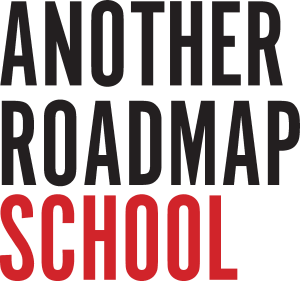Return to Cluster INTERTWINING HI/STORIES
Return to TOOLS AND ACTIVITIES FOR LEARNING
LEARNING UNITS
The “Learning Units” each present arts education histories with a different geographical and historical focus. They invite to engage with histories, to reflect on one’s own previously acquired knowledge and to re-activate historical experiences in current art and education practice. Seven topics provide orientation in the resources, allowing to follow a path connecting several learning units.
The methods proposed range from individual exercises to concepts for learning processes in groups over a whole semester. As the resources have been conceived for a wide range of different learning contexts internationally each learning unit contains guidance as to who are the specific addressees and the proposed context of use – appropriations and adaptions for other contexts are welcome!
PATHS
-
Activating Archives Through Radical Methods
WORKING GROUP: LONDON AUTHORS: JANNA GRAHAM, EVAN IFEKOYA, RAISA KABIR, RUDY LOEWE AND RAJU RAGE ABSTRACT This Learning Unit is concerned with decolonising art educations, unlearning histories that replicate the colonial gaze, re-formatting our own art educations and a re-positioning of this canon by centring artists and cultural producers of colour. We are focused on…
-
Changing Places
WORKING GROUP: MANILA AUTHORS: EILEEN LEGASPI-RAMIREZ, MARY ANN JOSETTE PERNIA, IRIS ANGELA FERRER, BON HENRYK CORACHEA ABSTRACT Art’s power to enable a reimagination of the present is behind the possibly utopic title of this Learning Unit. By inviting you to think about what could happen when visual relations are reshaped within a picture frame, we…
-
Dear interested readers and educators
By Nana Adusei-Poku After working/observing and thinking with the Another Roadmap Research teams over the period of three years, I would like to use this opportunity to emphasize the sensitivity with which each workgroup worked on their often very difficult historical material. Many of the sources, visual and textual are carefully used in the learning…
-
Decolonising Literacy with Critical Pedagogy
WORKING GROUP: MASERU AUTHORS: BA RE E NE RE LITERARY ARTS : LINEO SEGOETE, ZACHARY ROSEN ABSTRACT This Learning Unit is intended to provide activity plans for students or other learners in late primary to high school, though they can be shared with any group of people with moderate literacy skills. The activities may be…
-
Discrepancies between Paulo Freire’s Method of Critical Literacy and Andean World-Views
WORKING GROUPS: QUITO, CUERNAVACAAUTHOR: ALEJANDRO CEVALLOS ABSTRACT The work itinerary that we propose in this learning unit consists of materials, texts, images and personal anecdotes that Sofía Olascoaga[1] and I gathered on a visit we made to WAMAN WASI, a center of cultural affirmation and recovery of Amazonian Andean peasant technologies in Lamas Peru. The questions we…
-
Experiments in Injecting Critical Readings of the History of Arts and Design Education into an Introductory Course in Publication Design
WORKING GROUP: KAMPALA AUTHORS: KITTO DERRICK WINTERGREEN AND EMMA WOLUKAU-WANAMBWA ABSTRACT This learning unit was designed for use by 1 st year diploma level visual communication students at a tertiary-level art and design school in Uganda. Its aim was to introduce the students to publication design (as specified in the curriculum) while at the same…
-
How to Work with Archives that are “Not There”? Engaging Medu Art Ensemble in the Now
WORKING GROUP: JOHANNESBURG AUTHORS: PULENG PLESSIE AND RANGOATO HLASANE ABSTRACT This Learning Unit is concerned with the politics of archival access or how to work with archives that are ‘not there’. The central story of the Johannesburg Working Group (JWG) is the Medu Art Ensemble (Medu), a collective of informal members; most of them exiled…
-
Path: “The artist” – “the child” – “the native”
This path is based on research into the discursive co-constitution of the triad of “the artist” – “the child” – “the native” and its historical connections to colonialism and mechanisms of exclusion. This triad relies on a gaze which is characterized by a simultaneous act of othering and idealization: it admires those who have not…
